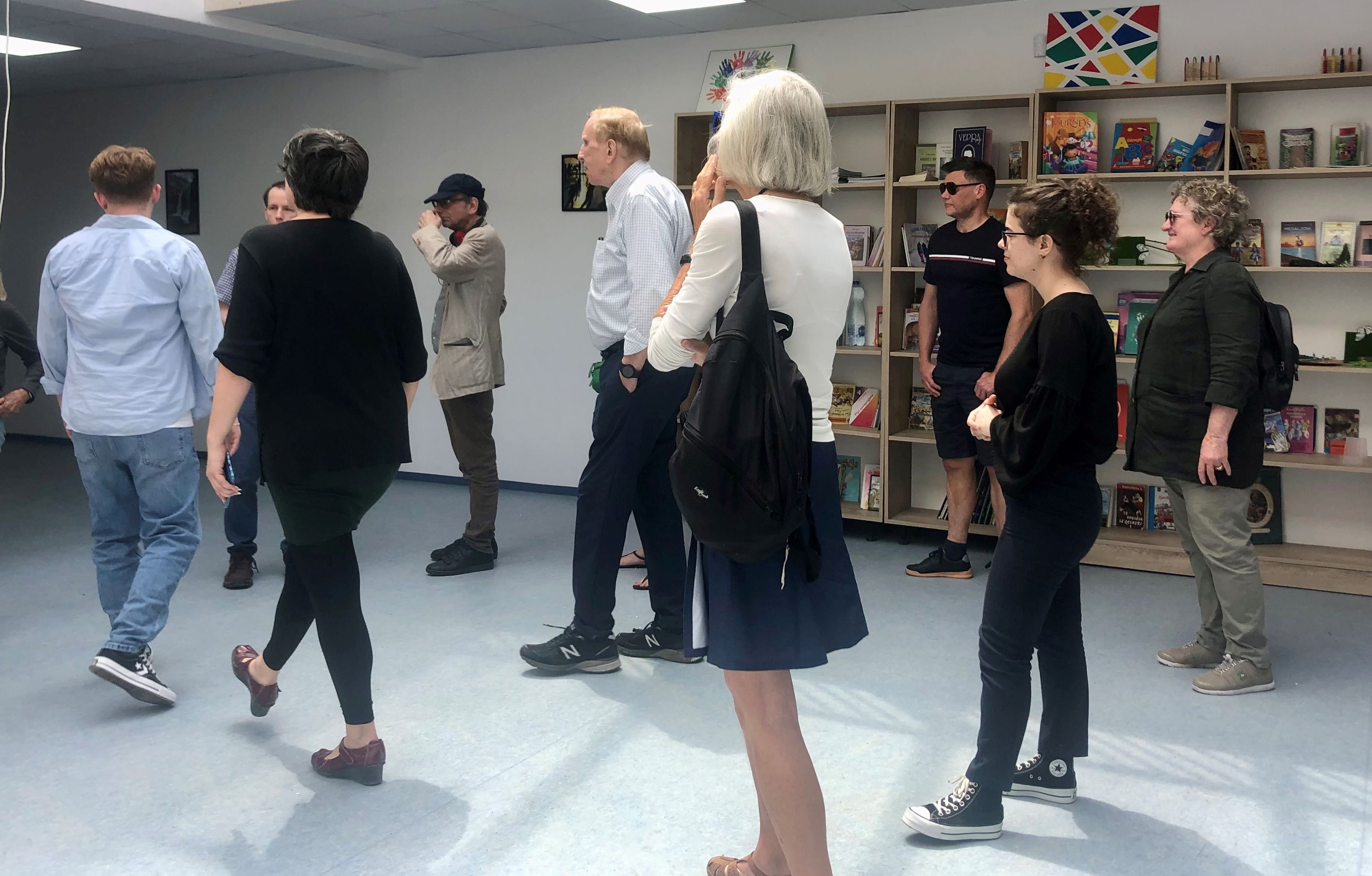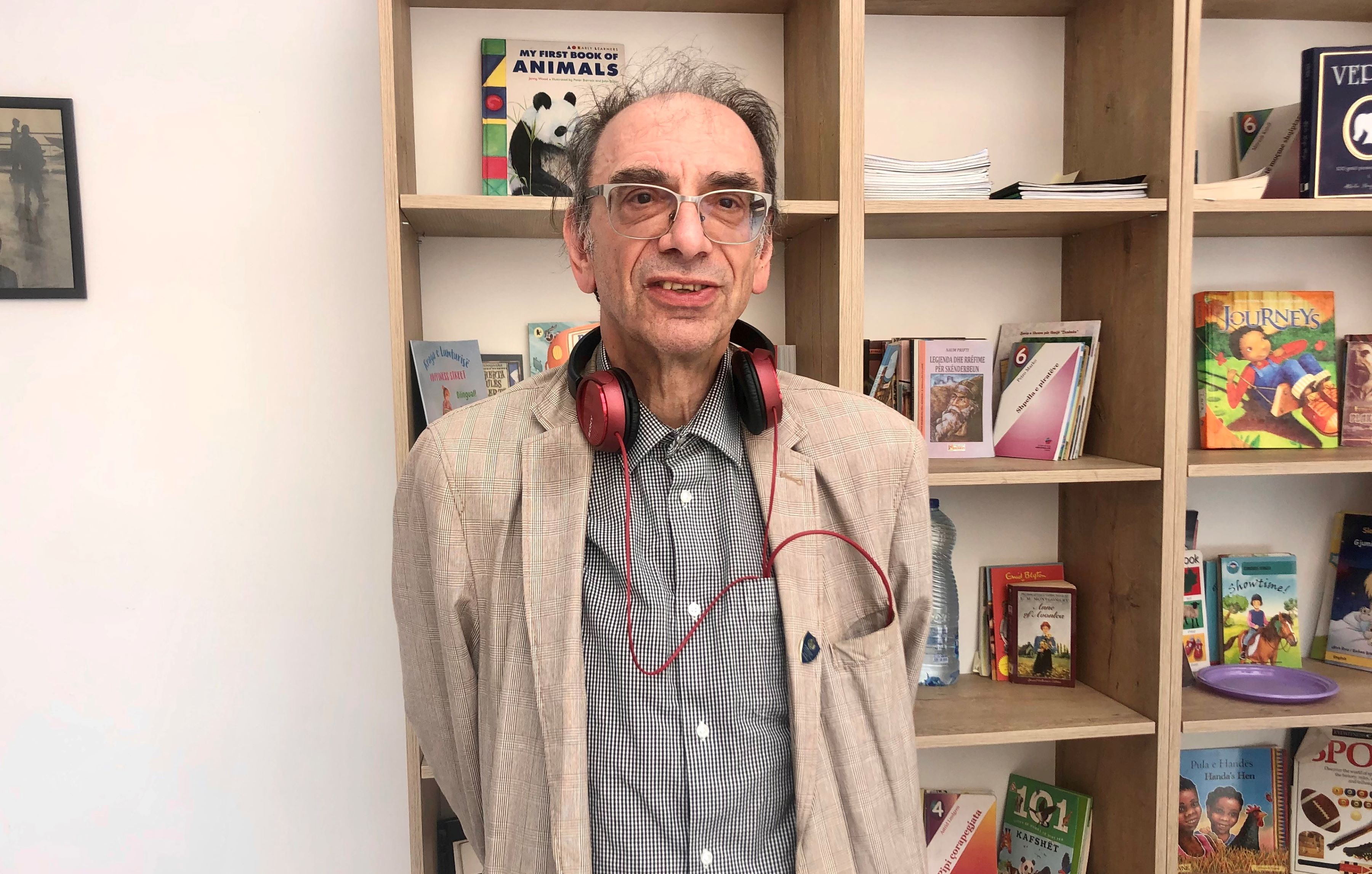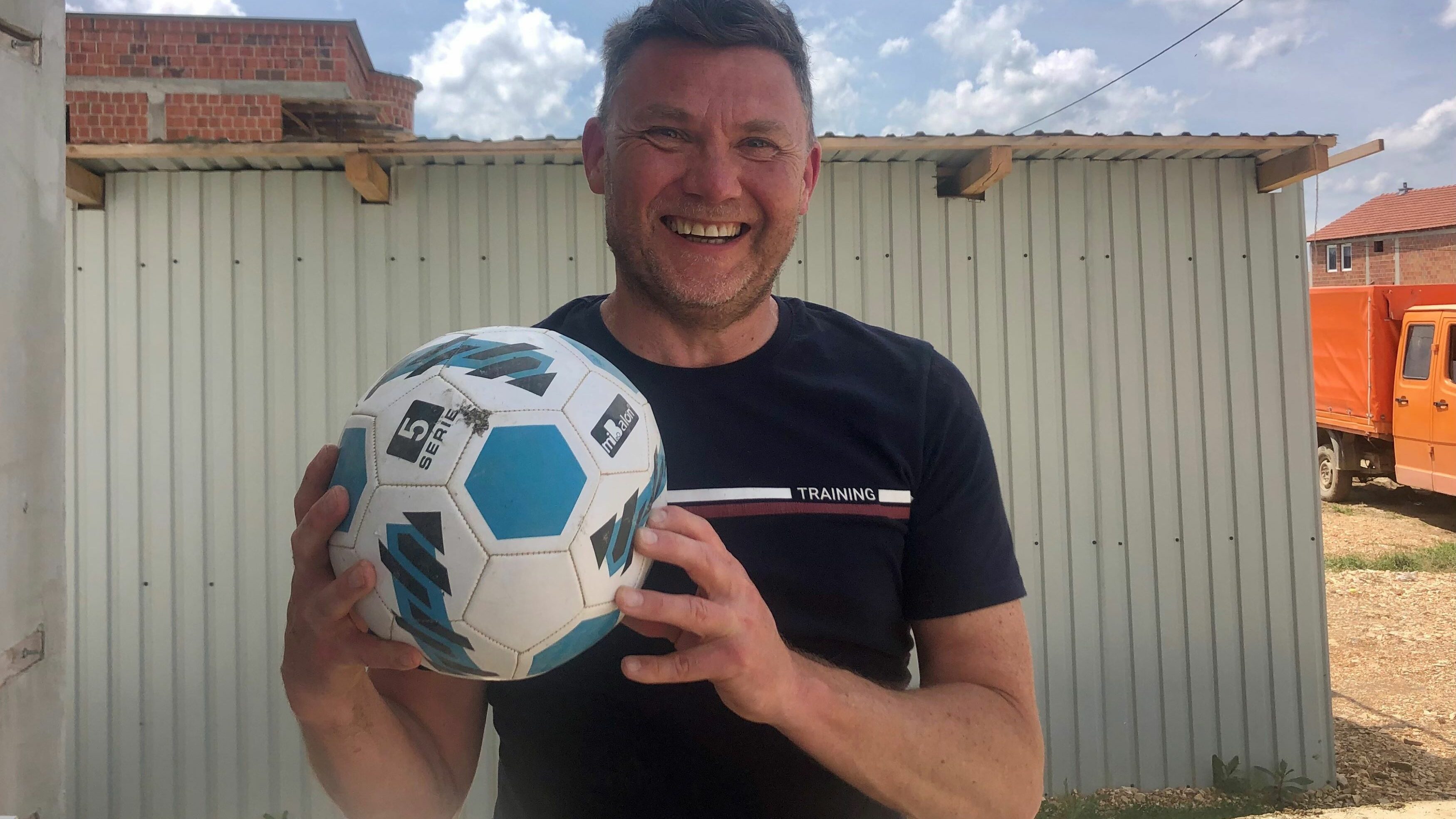With tensions running high in the north of the country, a group of intrepid tourists sought firsthand understanding, immersing themselves in the complexities of Kosovo’s history, ethnic dynamics, and the aspirations of its people.
Alan Richenberg, a British retiree with a keen interest in global political developments, arrived in Prishtina at the beginning of June to witness the ongoing political transformation in Kosovo.
Although it was his first time in Kosovo, and tensions in the northern region were running high, Richenberg described the country as fascinating.
Together with six other visitors from different countries, Richenberg visited Kosovo as part of Political Tours, founded by the former BBC journalist, Nicholas Wood.
Despite their diverse backgrounds, everyone on the tour shared a common interest in the future of the young country.
The journey commenced in Prishtina on July 3rd, proceeded to Belgrade, and will continue until June 14th in Sarajevo. The tour’s objective is to shed light on the reasons why long-term peace has proven elusive in the region.

Photo: Antigonë Isufi/Prishtina Insight
Travelling together in a small bus and listening to stories about Kosovo, the group visited North Mitrovica, Gazimestan, Gracanica, Prishtina, and Fushë Kosovë.
“I expected to find quite a poor, disadvantaged country and when I came into Prishtina after dark, with the bright neon lights, it was like a town in the American Midwest. It’s made a lot more progress than I’d understood since the days of Yugoslavia,” said Richenberg.
In an interview with Prishtina Insight during his visit to the Idea Partnership organization in Fushë Kosovë, he stressed that if the entire region could join the EU, borders would become irrelevant, minority rights could be protected, and the prospects for the people would greatly improve.
“I’m quite optimistic about the future of Kosovo, but I do hope that the people here, as well as elsewhere in the Balkans, will reject populists and those who seek to create conflicts over trivial matters,” he added.
Richenberg has previously traveled with Political Tours on several other tours, including those in the US, South Africa, South Korea, the Baltics, Northern Ireland, Italy, and Hungary.

Alan Richenberg. Photo: Antigonë Isufi/Prishtina Insight
Exploring Kosovo through a Political Tour
During the scheduled travel dates to Kosovo, the visitors were particularly intrigued by the ongoing political situation, which was far from calm, prompting them to gain a deeper understanding of the events unfolding in the northern part of the country.
As part of the tour, the visitors were taken to North Mitrovica, allowing them to witness the ethnic dynamics firsthand.
Additionally, a day tour was dedicated to exploring the status of Kosovo’s Roma, Ashkali, and Egyptian communities, the repercussions of the war, issues related to early marriages, interethnic clashes between Kosovo Albanians and ethnic Serbs, and even the significance of train lines.

Photo: Antigonë Isufi/Prishtina Insight
Nicholas Wood, the founder of Political Tours, highlighted the motivations of the tour participants, stating, “the people who come on our tours are interested in politics and they read serious newspapers, and we offer an opportunity for them to see the situation for themselves.” In an interview with Prishtina Insight, Wood discussed how Political Tours, an organization that arranges economic and political study tours in over 30 countries, aims to provide travelers with firsthand knowledge of current affairs.
Wood expressed surprise at the lingering unresolved issues in the region, particularly noting the enduring division in Mitrovica, which has persisted for two decades. He placed responsibility on the leadership of Western Europe for the sluggish progress toward EU membership that the entire region should be making. Moreover, Wood expressed sadness over the current damage to Kosovo’s reputation, largely attributed to the Prime Minister’s handling of recent events.
Having previously worked as a journalist for prestigious media outlets such as the New York Times, BBC, The Guardian, The Observer, The Washington Post, and CBS, Wood founded Political Tours in 2011. His firsthand experiences covering the refugee crisis in Albania and Macedonia in 1999, as well as the conflict in Macedonia in 2001, influenced his vision for the tour company.
Wood emphasized that these tours aim to understand the societal changes that have occurred during and after the war, identify lingering problems, and recognize key challenges. Participants engage with various communities, government officials, opposition politicians, as well as individuals from specific and minority communities, fostering a comprehensive understanding of the complex dynamics at play in Kosovo.

Sandra Doll. Photo: Antigonë Isufi/Prishtina Insight
Curiosity about the respect for minority rights in Kosovo
Australian journalist Sandra Hall, who had previously relied on media reports about Kosovo, has now had the opportunity to experience the country firsthand. She expressed her enthusiasm for discovering new aspects of Kosovo that she hadn’t known before and her desire to learn even more.
In an interview with Prishtina Insight, Hall stated, “We are now beginning to see what the war is about and why independence is so important to Kosovo…, with people who talk to us, and just about the aspirations people have.” She emphasized the significance of understanding ethnic tensions and minority rights.
During a conversation with Elizabeth Gowing, the PM advisor on community affairs, Hall listened intently to stories about the Roma, Ashkali, and Egyptian communities, drawing parallels to the indigenous people of Australia. She also mentioned the importance of giving a voice to indigenous people in Australia’s parliament.
During her two-day visit, Hall learned about the history of the Roma community in Kosovo, the events that unfolded in the country, the reestablishment of the government, and the process of rebuilding. She admitted that she had been unaware of many of these aspects before her visit.
Hall is a journalist who has contributed to publications such as The Australian, The Bulletin, and The Sydney Morning Herald. She is also a film critic for Fairfax Media and has authored several books, including novels and a biography.

Dylan Thwaites. Photo: Antigonë Isufi/Prishtina Insight
Dylan Thwaites, a retired entrepreneur from the UK, shared his perspective on Kosovo’s challenges related to non-majority communities. He expressed his belief that while a hot war is unlikely, it remains crucial to address potential risks. During his interaction with children from the Roma, Ashkali, and Egyptian communities in Fushë Kosovë, Thwaites emphasized his positive impression of the atmosphere.
After visiting North Mitrovica a day earlier, he said that he observed a different image of the divided city than he had anticipated, addig “they were all sitting out in cafes with the children, enjoying the sun just the same.”
Thwaites has spent the last decade traveling and providing consultancy services for causes he supports. Through Political Tours, he has visited various countries, including South Africa, North Korea, Iran, Israel, Palestine, and Lebanon.
Diane Cook, the director of Vitol Services Ltd, a UK subsidiary within the global energy services group Vitol, expressed her view that the situation in Kosovo cannot be compared even to Bosnia. She questioned the existence of conflicts between ethnicities and races worldwide, using the situation between Kosovo and Serbia as an example. Cook, who has previously worked for the UK Government and has expertise in taxation, highlighted the importance of focusing on global problems such as climate change rather than ethnic issues.
Cook had followed the war and the breakup of Yugoslavia and was aware of Kosovo’s predominantly Albanian population. She expressed her despair about the Monastery in Gracanica and the tensions between different ethnicities, emphasizing the need to address issues that threaten humanity’s future.
Having traveled with Political Tours to Turkey, Italy, and South Africa, Cook concluded, “Now that I’m here, I can see that Kosovo is brilliant.”





